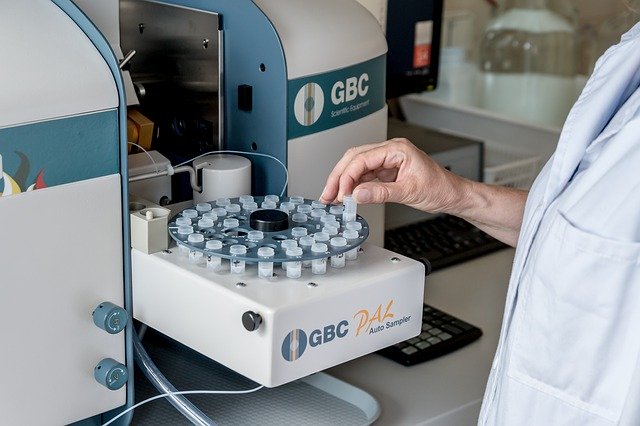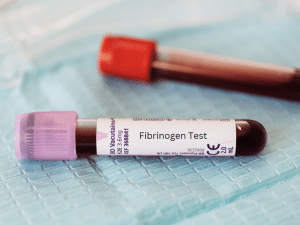Knowing that there are specific functions of progesterone in the male body is not common. There are hormones that are always linked, in popular thought, to women and to concise stages of their lives, such as pregnancy.
But men also have and need progesterone. It is produced in the testicles and adrenal glands to then become testosterone. That is to say, low levels of this substance would also imply a decrease in the metabolisms regulated by typically male hormones.
The functions of progesterone in men are varied and, thanks to the advancement of scientific knowledge, guidelines have been established for its use in those patients who have low levels of the hormone. Even research points to the possibility of using it as a complement to prostate cancer treatment.
What are the functions of progesterone in men?
In men, progesterone is largely transformed into testosterone, but it also performs specific actions that belong to it, before its conversion. For example, it intervenes in the effect of the enzyme 5-alpha-reductase, which is key in the development of benign prostatic hypertrophy.
In bone tissue, one of the functions of progesterone in men is to stimulate the formation of new bone, through osteoblasts, which are the cells that deposit calcium. For men, this is a protective factor against osteoporosis, which becomes more frequent as they age.
Neuronal transmission does not escape its functions, either. An influence of the hormone in the brain has been found that has to do with the regulation of neurotransmitters. Its presence in adequate quantities ensures that connectivity is efficient and the thought and memory process remains intact.
In the same sense, mood and sleep hours are regulated, in part, by progesterone in men. This is thanks to certain receptors that exist in neurons and that, when they come into contact with the substance, trigger anxiety relaxation mechanisms. The most studied receptors in this regard are those called GABA, which combine with a neurosteroid form of progesterone.
Something less studied, but already confirmed, is the relaxing function of progesterone on smooth muscles in men. This variety of tissue is found, above all, in hollow organs, and serves to reduce or increase their internal lumen. There is smooth muscle in the bronchi and the gallbladder, for example.

Sexual functions of progesterone in men
Male fertility is dependent on the functions of progesterone in men. In addition to being a precursor to testosterone, it stimulates the movement of sperm, making them vital for moving towards the egg.
Another key point of the sexual functions of progesterone in men is the transformation that the hormone drives in certain regions of the sperm so that, once it reaches the egg, it can penetrate it. Without these changes, even if mobility is excellent, there would be no union for the subsequent formation of the egg-zygote.
Symptoms of low progesterone in men
According to the functions of progesterone in men that we have been listing, it is clear that a reduction in the amount of it will have consequences on various organs and systems of the male body. That is why it is useful to measure the concentration of the hormone in the blood when certain symptoms indicate a deficiency.
Some of the symptoms of low progesterone are the following:
- Bone fractures: since progesterone stimulates osteoblasts and the formation of new bone, when it fails, it favors the weakness of the tissue. Therefore, a small trauma, a fall from a low height or sustained traction can lead to a bone fracture, which, by definition, would be osteoporosis. If a man over 45 years of age is injured in this context, he should be studied accordingly.
- Decreased libido: Sexual desire is regulated by one of the functions of progesterone in men. It is not only an action at the level of the reproductive system, but also at the cerebral level, since it depends on good mood and state of mind. In some men with low libido, erectile dysfunction is associated, that is, the inability to maintain an erection for sexual intercourse. The biggest problem is perpetuated because a vicious circle is entered in which the lack of desire leads to depression and depression feeds erectile dysfunction.
- Bad mood: When progesterone is low, the man loses interest in the things he liked and has no goals for the future, these can be early signs of depression. The picture is often completed with insomnia, bad mood, sexual dysfunctions and problems in social relationships. Sometimes, it is low progesterone that hides behind the depressive picture.
- Obesity and overweight: estrogens are hormones that increase the accumulation of body fat in men and women. Progesterone plays an opposite role, counteracting this effect. When there is an imbalance, meaning that estrogen levels far exceed progesterone levels, people tend to accumulate fatty tissue, especially in the abdomen. For men, this is central obesity, which carries cardiovascular risk.

Should I measure my progesterone levels?
Not all men should, measuring your blood progesterone concentration. This is indicated when certain symptoms or situations suggest a decrease.
Currently, in patients with prostate hypertrophy and cancer of the same organ, it is suggested to perform a complete hormonal panel that includes progesterone. In this way, if it is possible to apply an adjuvant treatment in this sense, progression to more aggressive forms of the disease could be prevented.
The test is simple, with a blood test after a venous blood draw. In most places, the result does not take more than 48 hours and is usually complemented by the measurement of other hormones. Thus, based on the known functions of progesterone in man, it will be possible to prevent and treat pathologies.



